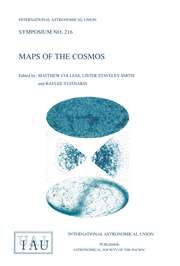No CrossRef data available.
Article contents
Quasar Radio Structure in Cluster Environments
Published online by Cambridge University Press: 25 May 2016
Extract
Core share and HTML view are not available for this content. However, as you have access to this content, a full PDF is available via the ‘Save PDF’ action button.
We have VLA snapshots at 6cm and 20cm of ≃50 QSOs of redshift ≤0.7 with a range of known optical galaxy environments. The radio sources were characterised by measures of flux, size, and shape. The cluster density of the QSOs is given by the Bgq number from galaxy companion data largely published by Yee and Ellingson (e.g. ApJ 411, 43, 1993).
- Type
- Radio Sources and their Environment
- Information
- Symposium - International Astronomical Union , Volume 175: Extragalactic Radio Sources , 1996 , pp. 329 - 330
- Copyright
- Copyright © Kluwer 1996


